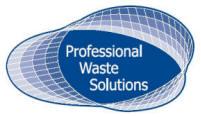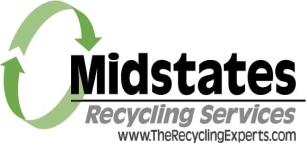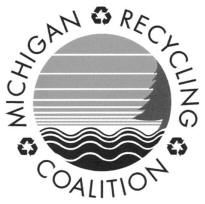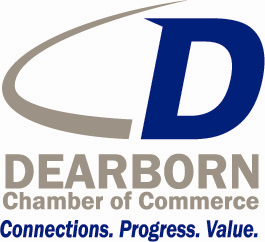
| What is HIPPA? |
 |
 |
|
If your organization is privy to private information and that information becomes public, it could be argued in a court of law that you had a responsibility to protect it, and are, therefore, liable for any damages. To protect your organization against the risk of liability it is smart business practice to routinely shred stored records as soon as their retention period is up, and to routinely shred daily documents as soon as they have outlived their usefulness.
More Reasons to Shred:
IDENTITY THEFT and information based fraud is the fastest growing crime in America! 1 out of every 5 people is a victim of identity theft. Victims spend an average of 200 hours over a 3-year period and spend over one thousand dollars of out-of-pocket expenses to recover from the effects of having their identity stolen.
At the very least, you have an "implied contract" to protect their information, simply based on the fact that you are collecting their data to conduct business. They have a legal contractual right to expect you to take every precaution to protect it, which can only be accomplished by shredding the data before it is discarded.
Privacy laws require you to keep your customers' personal information private. Their confidential information can neither be disclosed to the public, nor to unauthorized personnel in your own office.
They have a legal right to have their personal information secured by shredding their data before it is discarded. 2. Your Company's Information Security:What would it cost your company, your customers and your employees if sensitive information were to fall into the wrong hands?
An estimated 7 billion dollars was lost last year alone to corporate espionage.
Dumpster Diving is legal - The U.S. Supreme court has ruled that information thrown in your trash is fair game to anyone.
The FBI estimates the theft of proprietary information costs U.S. corporations $42 billion annually.
If you don't protect your trade information, the courts won't either. 3. Convenience:
Attractive Locked Security Containers (consoles and/or bins) provided to you FREE of charge to be placed strategically in your facility, in locations convenient for your staff to use to dispose of confidential materials.
No need to sort paper by color or grade or remove staples, paper clips, alligator clips, binding, or any other items attached to materials.
Once your documents are easily placed in the locked security containers, within seconds your job is done!
No need to call for routine service. We automatically have you scheduled for service - timely pickups are based upon your needs.
Only Shredd-Safe and the designated contact within your organization has a key to access these security containers. 4. Cost Efficiency:Are you still using an office shredder? Time is money! We can do it cheaper, more secure, and more efficiently than you can do with an in house office shredder.
We guarantee you that the savings will be significant.
In 15 minutes we can destroy what it would take an office shredder days to do.
In-house shredding will not handle large volumes and may prompt employees to circumvent the destruction process.
5. Regulatory Compliance:
Could your company survive a lawsuit? The Health Insurance Portability and Accountability Act (HIPAA) enacted in 1996 includes provisions to safeguard the privacy of patient health records. The HIPAA rules apply to all protected health information whether it is kept electronically, on paper, or communicated orally. Hospitals, individual doctors, pharmacies, and other businesses involved in the health care industry are currently in the process of designing procedures that will comply with the new HIPAA rules. This Act requires that financial institutions take steps to ensure the security and confidentiality of its customers non-public personal information including personally identifiable information such as Social Security numbers, passwords or access codes for bank accounts, credit cards, ATM cards, financial assets of an individual, consumer credit reports, financial account numbers for an individual, and other similar such financial information that is attributable to a particular individual. The harm caused by "identity theft" has led the federal government to create mandates such as this in order to prevent even the negligent disclosure of sensitive personal information. GLB covers a wide array of financial activities. The definition of a "financial institution" under GLB is extremely broad, including preparers of individual tax returns, providers of real estate settlement services and debt collection agencies. was established to insure that government agencies protect the privacy of individuals and businesses with regard to information held by them and to hold these agencies liable if any information is released without authorization. The purpose of this Regulation is to bring businesses regulated by the SEC into compliance with the concepts for privacy outlined under the GLB Act. This Act applies to broker-dealers, funds, registered advisers, those who deal with variable annuity or variable life insurance, and any other entities dealing in Securities. In October 1998, the European Union's wide-sweeping privacy legislation — called the European Union Data Protection Directive — became effective. The Directive places new requirements on businesses that wish to collect, process or transfer personal data from an EU Member State to an non-EU Member State. Under the Directive, the transfer of personal information from an EU Member State to a non-EU country is forbidden unless the country and the company involved provide an "adequate" level of privacy protection. exists to widen and raise the culture of Risk Management throughout Europe to its members and to the risk management and insurance community. It achieves its aims by promotion and raising awareness of risk management through the media, by information sharing, educational and research projects. The new Fair and Accurate Credit Transactions Act of 2003 (FACTA) amends the current Fair Credit Reporting Act (FCRA) to "prevent identity theft, improve resolutions of consumer disputes, improve accuracy of consumer records, make improvements in the use of, and consumer access to credit information, and for other purposes." was passed to implement changes in federal securities regulation, corporate governance, and the regulation or auditors. It expanded federal white-collar laws criminalizing the destruction of certain corporate communications and documents. By not adhering to a program of routinely destroying stored records, a company exhibits suspicious disposal practices that could be negatively construed in the event of litigation or audit. Destroying on a set schedule limits your legal risks. is a Federal law that protects the privacy of student education records. The law applies to all schools that receive funds under an applicable program of the U.S. Department of Education. FERPA gives parents certain rights with respect to their children's education records. These rights transfer to the student when he or she reaches the age of 18 or attends a school beyond the high school level. Enforced by the Federal Trade Commission, is designed to promote accuracy and ensure the privacy of the information used in consumer reports. Recent amendments to the Act expand your rights and place additional requirements on Consumer Reporting Agencies. Businesses that supply information about you to Consumer Reporting Agencies and those that use consumer reports also have new responsibilities under the law. makes the theft or misappropriation of trade secrets a criminal offense, and is the first federal law that purports to both broadly define and severely punish such misappropriation and theft. 6. Recycling:Don't just secure your company's confidential documents. Help secure the environment as well. All shredded materials go directly to a paper recycler. Shredded materials are recycled into materials such as paper towels, toilet paper, cardboard, corrugated boxes, etc. For every ton of paper recycled, you help save 17 trees and 3 cubic yards of landfill space!
|


![]()

![]()
![]()





![]()

Ann Arbor, Allen Park, Auburn Hills, Belleville, Berkley, Bingham Farms, Birmingham, Bloomfield Hills, Brighton, Brownstown, Canton, Chesterfield, Center Line, Clarkston, Clawson, Clinton Township, Commerce, Commerce Township, Dawsonville, Dearborn, Dearborn Heights, Detroit, Dundee, Eastpointe, Ecorse, Farmington, Farmington Hills, Ferndale, Flat Rock, Franklin, Fraser, Garden City, Grosse Ile, Grosse Pointe, Hamtramck, Harper Woods, Hazelpark, Highland, Huntington Woods, Inkster, Keego Harbor, Lake Orion, Lincoln Park, Livonia, Madison Heights, Melvindale, Milan, Milford, New Boston, Northville, Novi, Orion, Oak Park, Orchard Lake, Pleasant Ridge, Plymouth, Pontiac, Rawsonville, Redford, River Rouge, River View, Rochester, Rochester Hills, Romulus, Roseville, Royal Oak, Saint Clair Shores, Saline, Shelby Township, Southfield, Southgate, Sterling Heights, Sylvan Lake, Taylor, Trenton, Troy, Walled Lake, Warren, Waterford, Wayne, West Bloomfield, Westland, Wixom, Woodhaven, Ypsilanti,